The rise of private armies during the Roman Republic marked a significant shift in the political and social landscape of the time. As wealthy elites sought protection against increasing crime rates, they began to amass personal military forces. This phenomenon not only altered traditional military roles but also challenged the very foundations of Roman governance.
This article delves into the factors that led to the emergence of these private forces, examining how loyalty shifted from the state to individual leaders like Caesar and Pompey. We explore the destabilizing effects these armies had on republican stability, their involvement in civil conflicts, and their broader societal and cultural impacts. Join us as we unravel the historical significance of private armies and their role in the eventual decline of the Roman Republic.
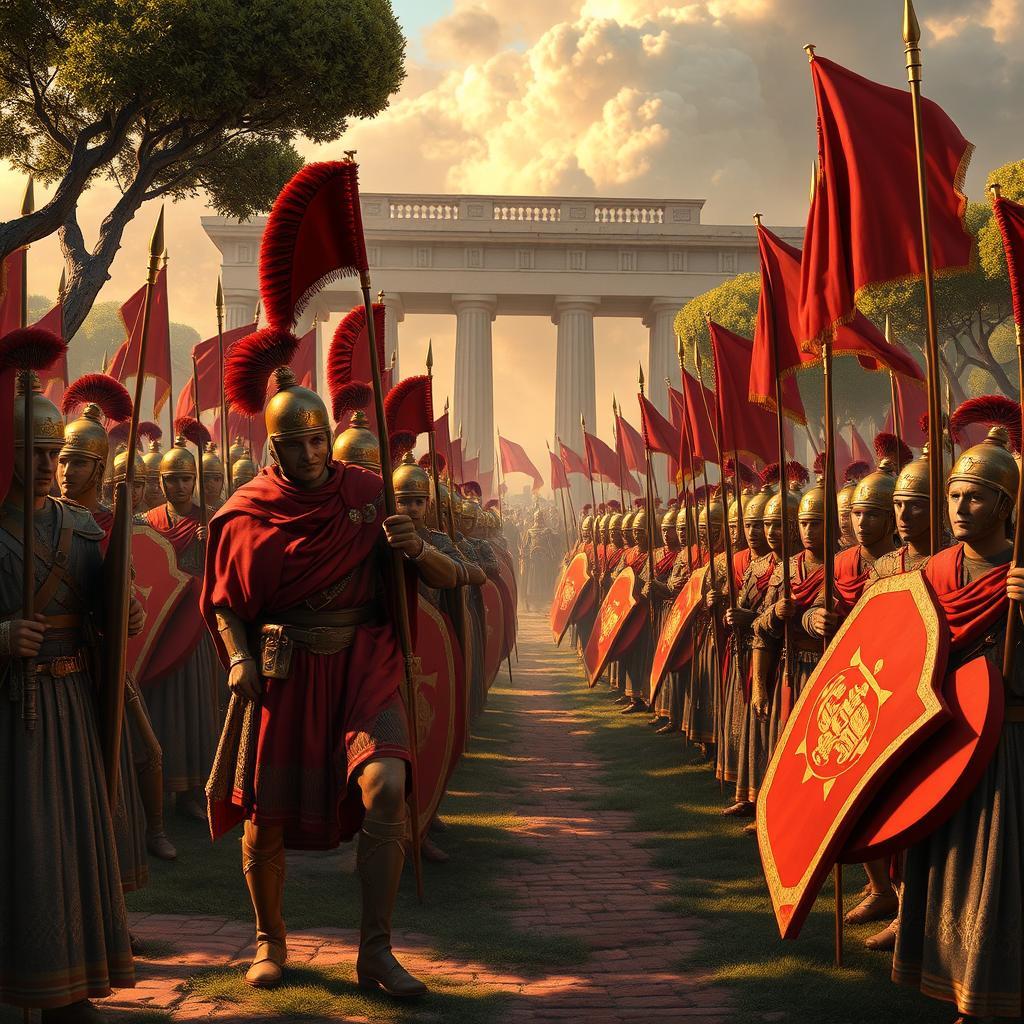
Origin of Private Armies
During the turbulent times of the Roman Republic, the rise of private armies was fueled by a mix of socio-economic conditions and growing insecurity. As Rome expanded its territories, wealth became increasingly concentrated in the hands of a few elites. This economic disparity, coupled with political corruption and ineffective governance, led to widespread social unrest and rising crime rates.
In this volatile environment, Rome’s wealthy citizens found themselves vulnerable and in need of protection. Traditional state forces were often inadequate or unavailable for personal security, prompting elites to take matters into their own hands. Hiring private forces became a pragmatic solution, allowing them to safeguard their assets and assert influence amidst the chaos.
These private armies, funded by immense riches, were more than just defensive tools. They became symbols of power and a means to exert control beyond legal and political boundaries. As a result, the hiring of private forces by the wealthy not only addressed immediate security needs but also paved the way for influential figures to wield unprecedented military might, setting the stage for profound shifts in Roman political dynamics.
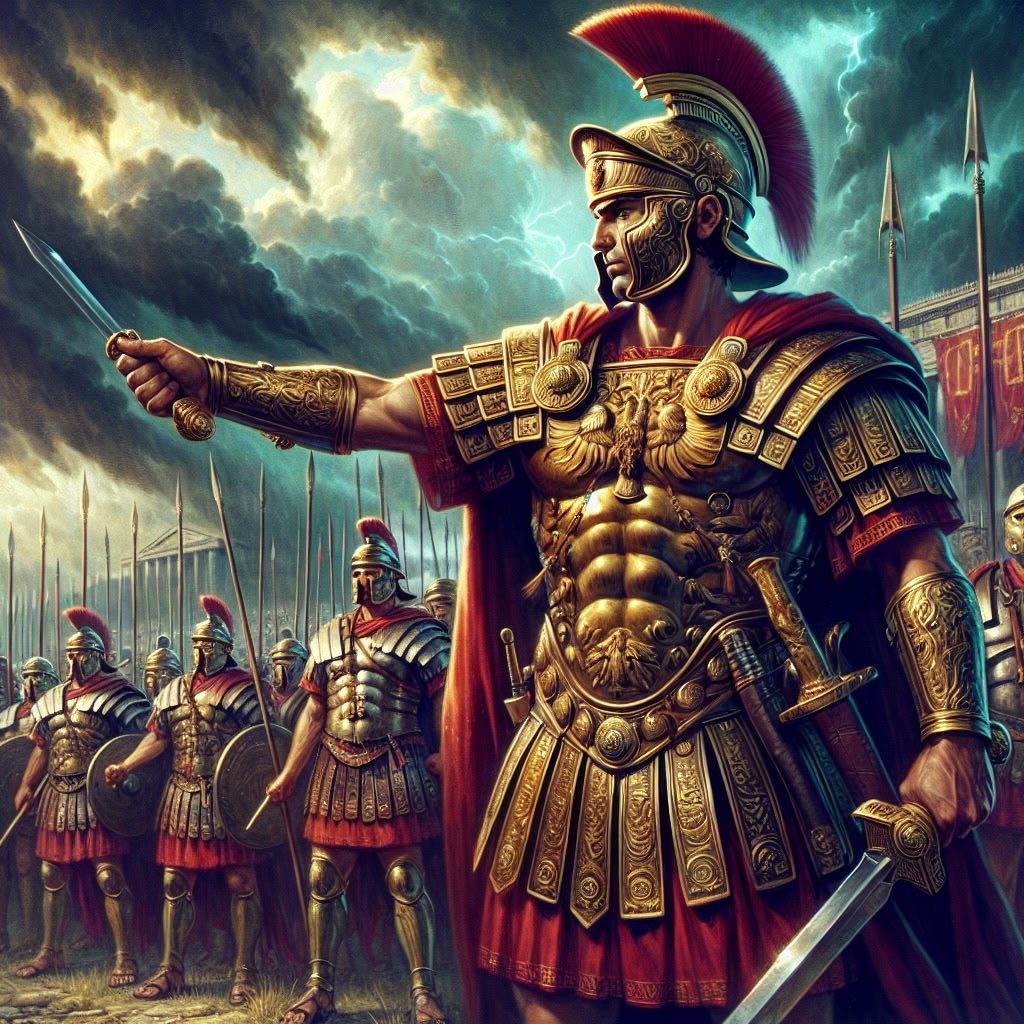
Shift in Military Loyalty
The emergence of private armies in Rome marked a significant transition in military loyalty, shifting from the Republic itself to powerful individual generals. This change was particularly evident under the influence of charismatic leaders such as Julius Caesar and Pompey the Great. Both figures leveraged their military prowess and personal charisma to secure the allegiance of their troops, transforming them into devoted followers.
Caesar’s army, for instance, was not just a fighting force but a loyal faction committed to his personal ambitions. His soldiers revered him not only for his strategic brilliance but also for his ability to share the spoils of war generously. Pompey, on the other hand, commanded respect through his strategic success and political acumen, further consolidating the loyalty of his forces.
This shift in allegiance from the state to individual commanders fundamentally undermined traditional Roman values. The Republic’s stability hinged on the notion that soldiers fought for the glory of Rome. However, with loyalty now tied to personal leaders, the military became a tool for personal gain, paving the way for civil conflicts and eroding the foundations of republican governance.
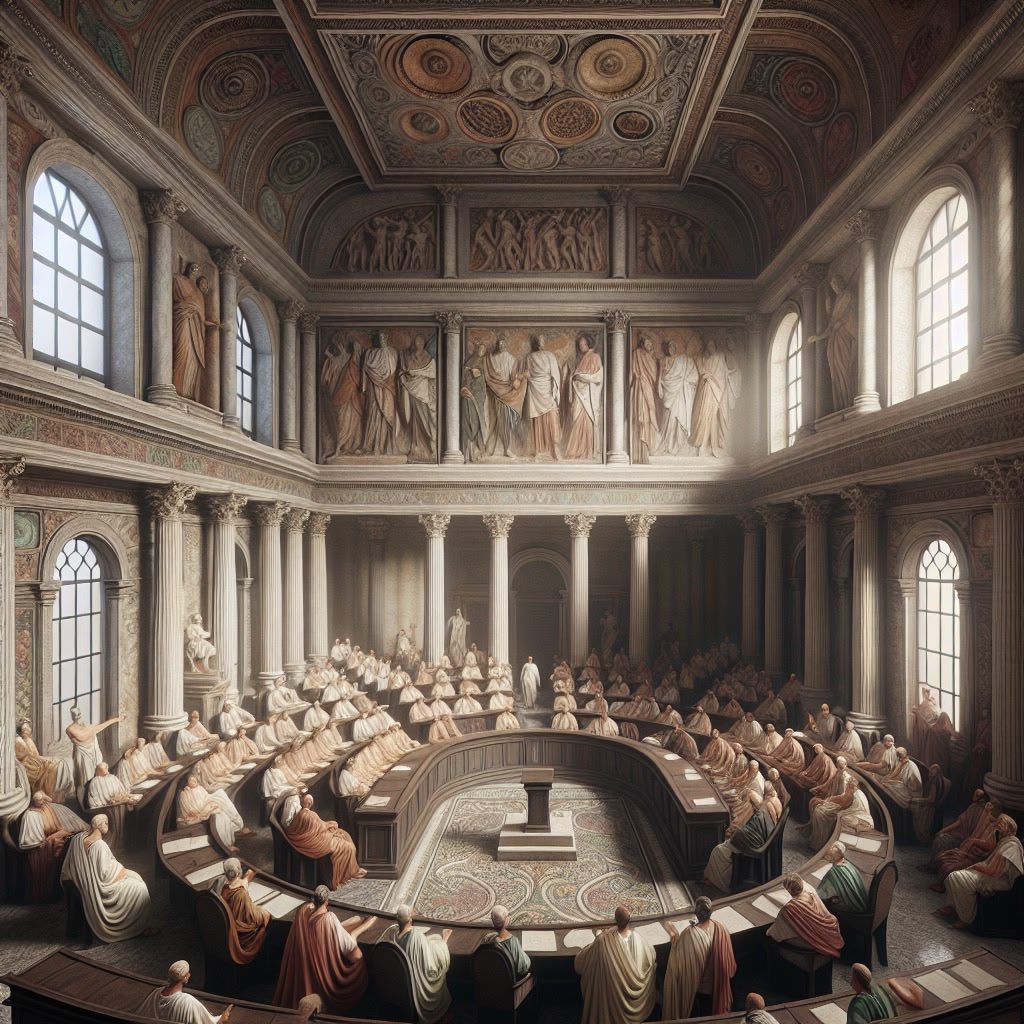
Impact on Republican Governance
The rise of private armies in Rome significantly destabilized the political landscape of the Republic. As powerful generals like Caesar and Pompey amassed personal forces, these armies became instrumental in sparking civil conflicts that disrupted Roman governance. A prime example is the infamous conflict between Caesar and Pompey, known as the Great Roman Civil War. This war was fueled by private armies loyal to their respective leaders rather than the Republic itself.
The presence of these private forces led to a breakdown of traditional political structures. With generals wielding military might to assert their political agendas, the Senate’s authority was frequently undermined. For instance, Caesar’s crossing of the Rubicon with his army was a direct challenge to the Senate, marking the beginning of a series of events that would lead to the eventual collapse of the Roman Republic.
Such internal conflicts not only weakened the Republic’s political stability but also paved the way for the rise of autocratic rule. The reliance on private armies fostered an environment where power was concentrated in the hands of a few, ultimately contributing to the erosion of republican governance and the emergence of the Roman Empire.
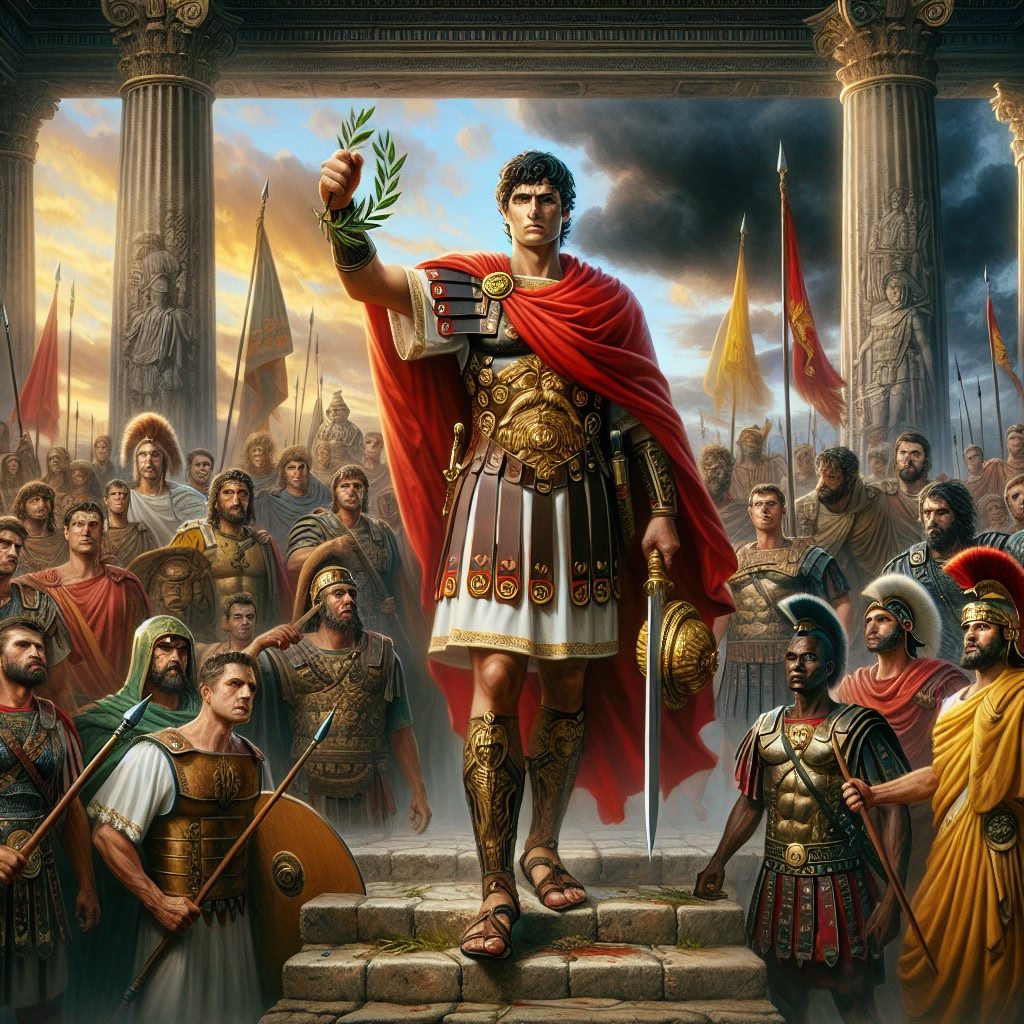
Case Study: Caesar’s Army
Julius Caesar’s adept use of his private army marked a pivotal shift in Roman politics. Through strategic military maneuvers, Caesar leveraged his forces to gain political ascendancy. His army’s loyalty to him personally, rather than to the Roman state, allowed Caesar to defy the Senate and cross the Rubicon in 49 BC, a bold act that led to civil war. This audacious move demonstrated how private military power could directly challenge and destabilize traditional republican governance.
Caesar’s military successes in Gaul had already bolstered his reputation and secured his soldiers’ loyalty. According to Suetonius, “He led his army with a combination of fear and favor, securing their devotion through victories and rewards.” This loyalty was crucial as Caesar marched his legions into Italy, effectively undermining the existing political order.
The impact on Roman political structures was profound. Caesar’s actions set a precedent for military intervention in politics, eroding the authority of the Senate. The ensuing civil war and his eventual dictatorship highlighted the fragility of republican institutions when faced with the might of a private army. Caesar’s legacy thus underscored the destabilizing potential of such forces in the Roman Republic.
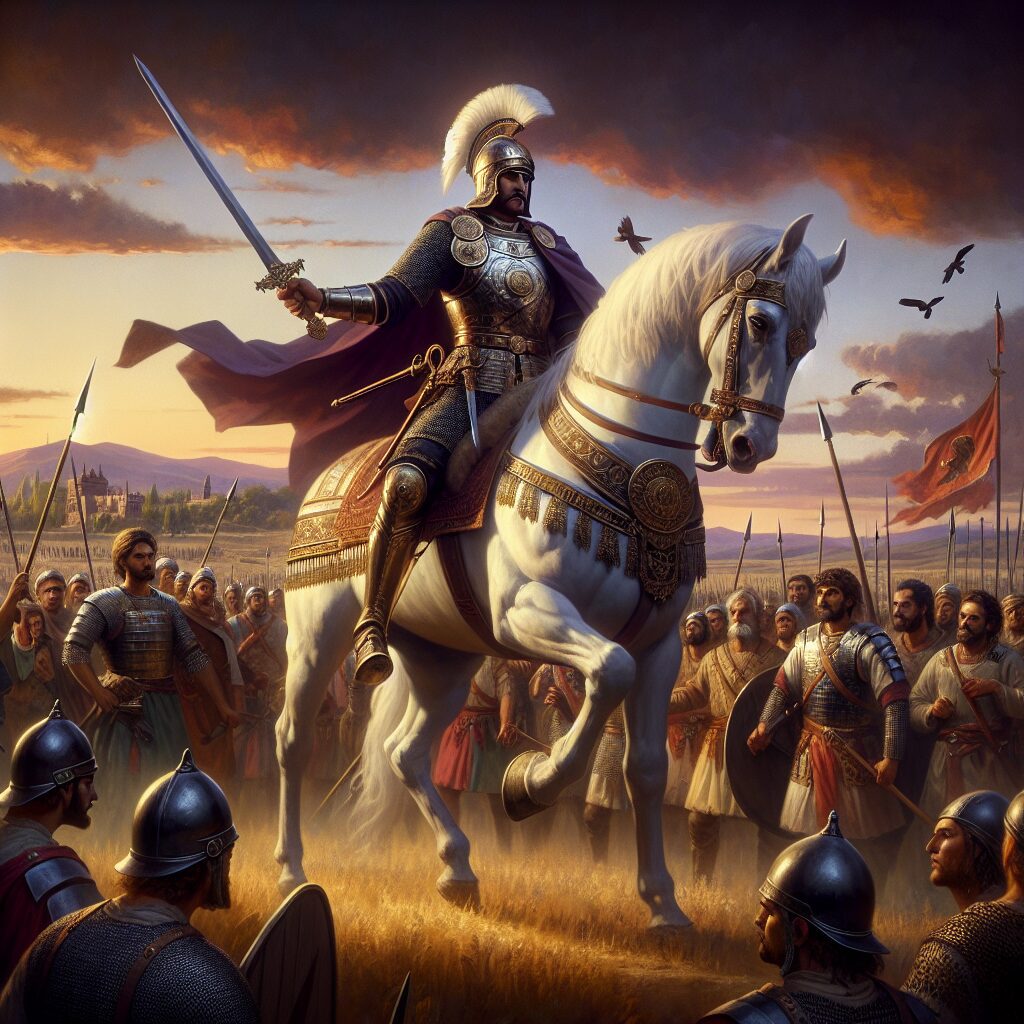
Case Study: Pompey’s Forces
Gnaeus Pompeius Magnus, known as Pompey, stands as a prominent figure whose military strategies greatly influenced the Roman Republic’s turbulent times. Leveraging his exceptional command skills, Pompey orchestrated several successful campaigns, notably against piracy in the Mediterranean and in the East, which expanded Roman territories and prestige. His ability to mobilize a formidable private army underscored his strategic acumen and political aspirations.
Pompey’s military forces played a crucial role in the Roman civil war. Initially aligned with the Senate, Pompey’s legions were instrumental in challenging Julius Caesar’s rising power. His strategic retreat to Greece was a calculated move to consolidate forces and resources. According to Plutarch, “Pompey relied heavily on his reputation and the loyalty of the provinces, believing they would tip the scales in his favor.” This reflects the deep-seated trust he placed in his military prowess and political influence.
The eventual defeat at the Battle of Pharsalus in 48 BC, however, marked a turning point. It highlighted the inherent risks of relying on personal armies for political gains. Pompey’s downfall illustrated how private military power could both elevate and dismantle republican stability, leaving a lasting impact on Rome’s political landscape.
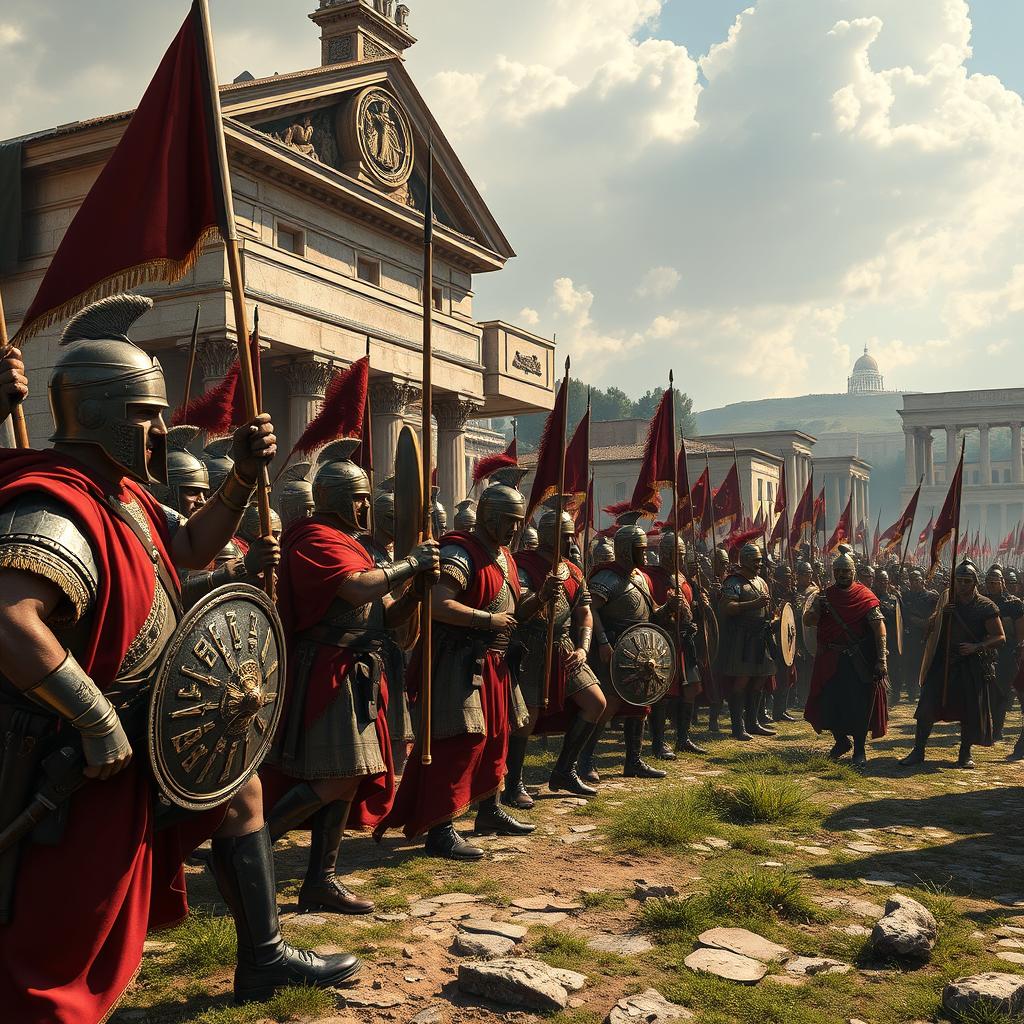
Funding Private Armies
The rise of private armies in the Roman Republic was significantly driven by the financial clout of wealthy elites. These affluent individuals employed various financial mechanisms to support their personal forces. Land revenues, spoils of war, and inheritance were primary sources of funds. Additionally, some elites formed alliances with local businesses, securing economic backing in exchange for protection and influence.
Maintaining a private army was no small feat, economically speaking. It required substantial resources, leading to a notable economic impact on Roman society. The diversion of funds from the public treasury to private interests often sparked economic disparities and inflation. This funding redirection sometimes strained the state’s resources, affecting public projects and services.
| Cost Factor | Private Armies | State Armies |
|---|---|---|
| Recruitment | High, due to personalized incentives | Moderate, funded by state taxes |
| Equipment | Varies, often superior due to elite funding | Standardized, state-provided |
| Maintenance | High, reliant on personal wealth | Moderate, supported by state budget |
In summary, the financial strategies employed by the Roman elite to fund private armies not only influenced military dynamics but also altered economic conditions, ultimately contributing to the Republic’s instability.
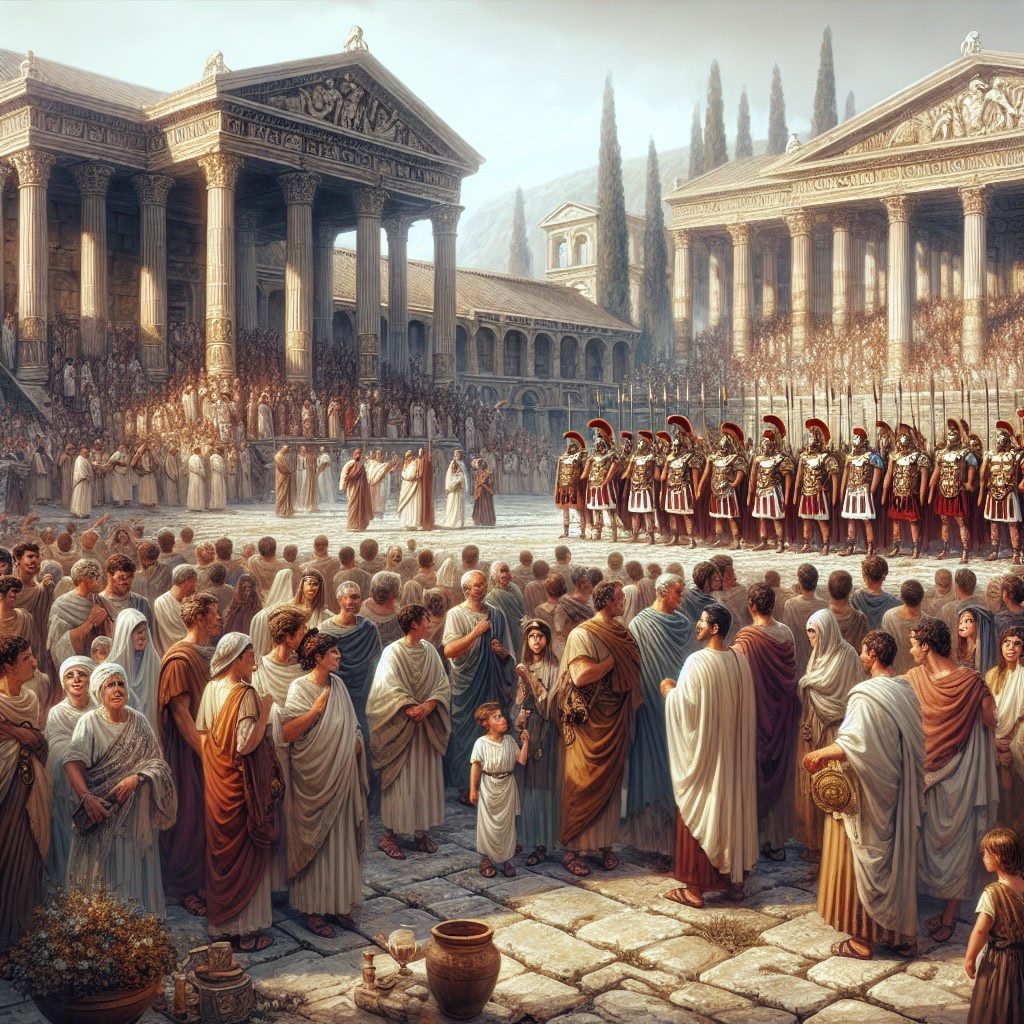
Societal Impact of Private Armies
The emergence of private armies during the Roman Republic significantly altered the social fabric and public sentiment. As wealthy elites began hiring personal militias, a new power dynamic emerged. These private forces elevated their patrons in the social hierarchy, granting them influence that rivaled state authority.
This shift created a sense of unease among the general populace. Historical accounts, such as those by Sallust, describe how citizens viewed these armies with suspicion and fear. They were seen as instruments of personal ambition rather than public service, leading to a growing distrust in traditional governance structures.
The presence of these armies also bred resentment among lower classes, who felt marginalized and powerless. The Republic’s ideals of shared governance and civic duty seemed overshadowed by the ambitions of a few. Cicero noted in his writings that the increasing reliance on private forces threatened to “erode the very pillars of the Republic,” further highlighting public concern.
In essence, private armies contributed to a fractured society, where the balance of power and public trust in governance was continually questioned, setting the stage for political upheaval and conflict.
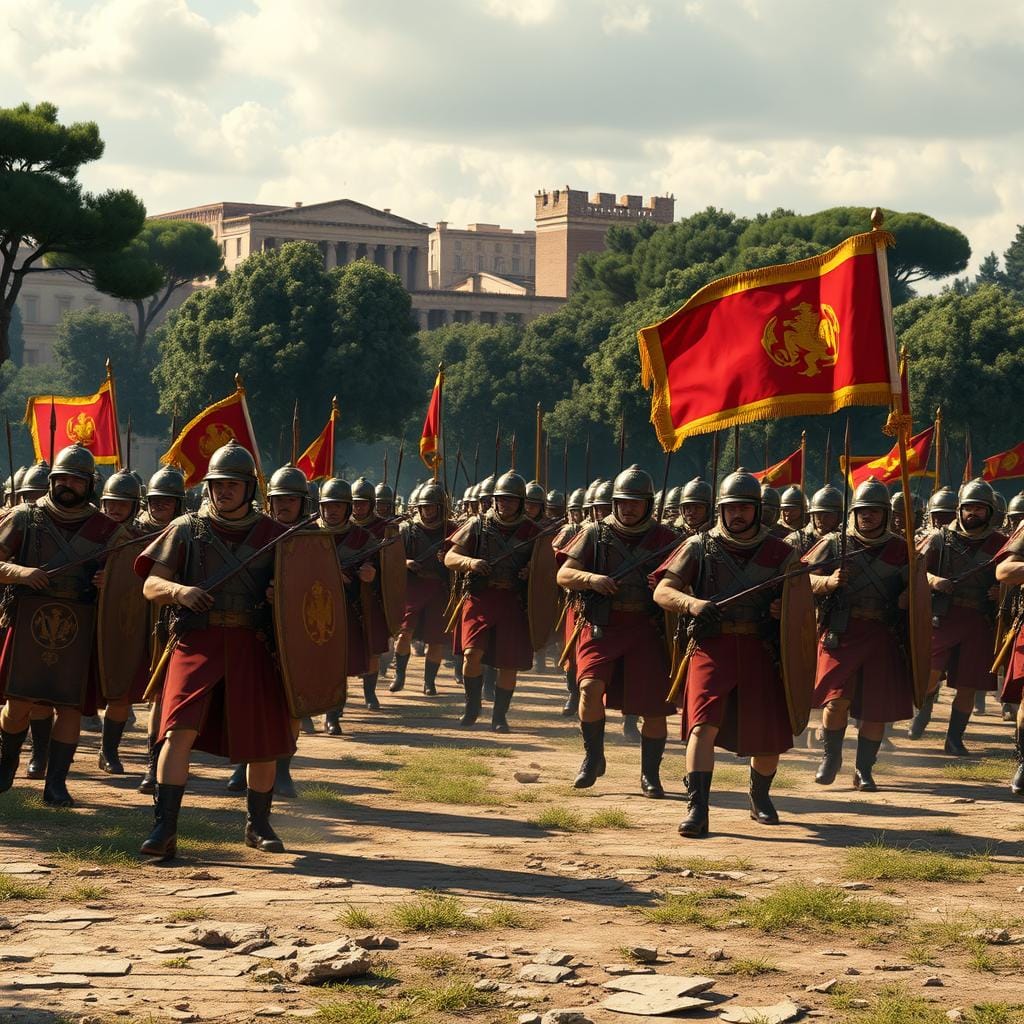
Legal Implications
The rise of private armies in Rome presented significant legal challenges for the Republic. As these forces became increasingly influential, the existing legal framework struggled to regulate their activities effectively. The absence of clear laws governing private militias meant that wealthy generals operated with considerable autonomy, often blurring the lines between public duty and personal ambition.
Roman lawmakers faced considerable difficulties in addressing this issue. Attempts at reform were sporadic and largely ineffective. While some senators called for stricter regulations, others, aligned with powerful figures like Caesar and Pompey, resisted such changes. This resulted in a legislative stalemate, where proposals for reform were frequently blocked or diluted.
Enforcing laws against powerful generals proved particularly complex. These leaders commanded loyalty from their troops, who often prioritized allegiance to their general over the Republic. As a result, legal actions against them were fraught with risk, potentially inciting unrest or even rebellion. This inability to effectively legislate and enforce laws against private armies highlighted a critical vulnerability in the Roman political system, exacerbating the Republic’s instability and paving the way for its eventual decline.
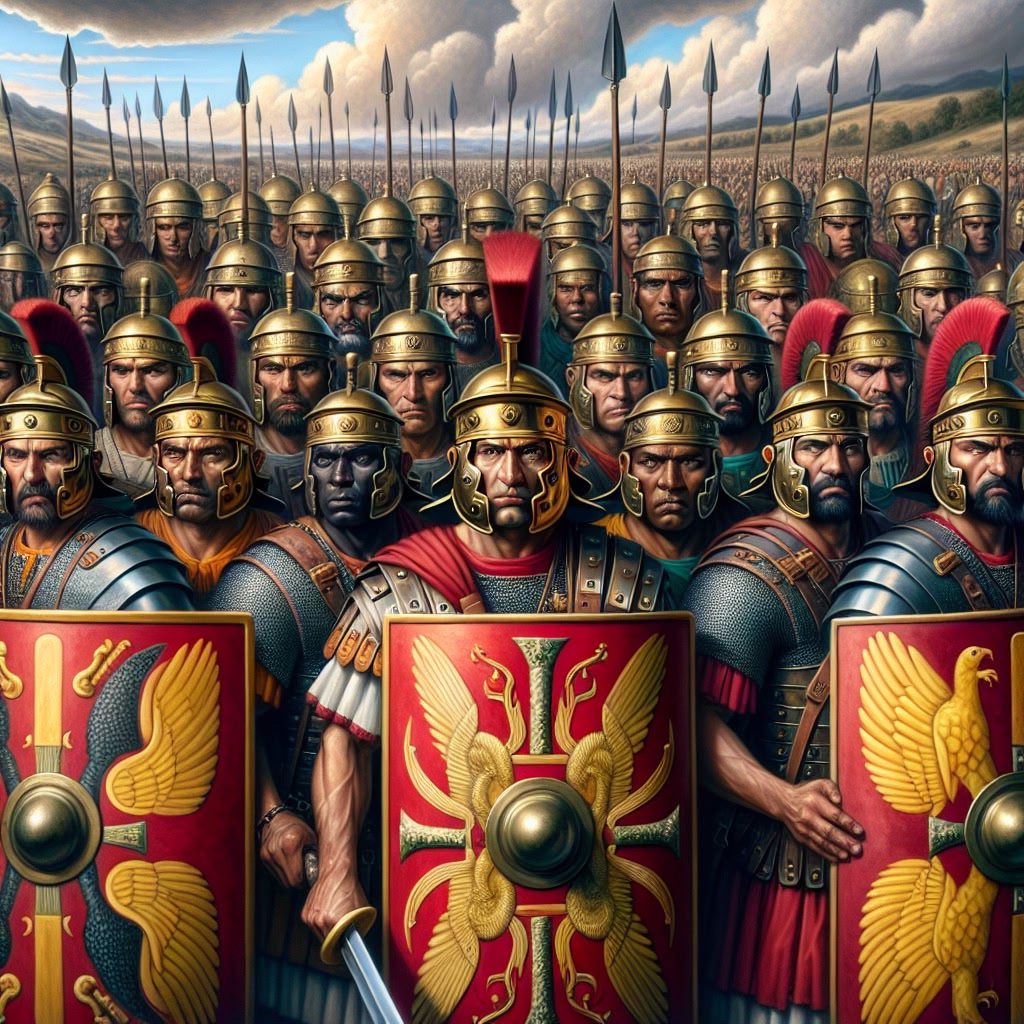
Military Organization and Private Armies
The organizational structures of state and private armies in ancient Rome were notably different, each with its unique impact on military operations. State armies were meticulously organized, following a strict hierarchy with loyalty directed towards the Republic. Soldiers in these armies were trained and equipped by the state, ensuring uniformity and discipline across the ranks.
In contrast, private armies were often more flexible yet less standardized. Wealthy elites or influential generals funded and controlled these forces, which meant that loyalty was personal rather than institutional. This personalized allegiance allowed generals to implement strategies that served their ambitions, often at the expense of the Republic’s stability.
The influence of private armies lingered long after their decline, playing a crucial role in shaping later military reforms. The flexibility and direct loyalty seen in private forces inspired changes in recruitment and command structures as Rome transitioned to imperial rule. This transformation aimed to harness the benefits of centralized control while maintaining the efficiency and loyalty that private armies offered. Thus, the legacy of private armies can be seen in the evolving Roman military organization, bridging the Republic and Empire’s strategic approaches.
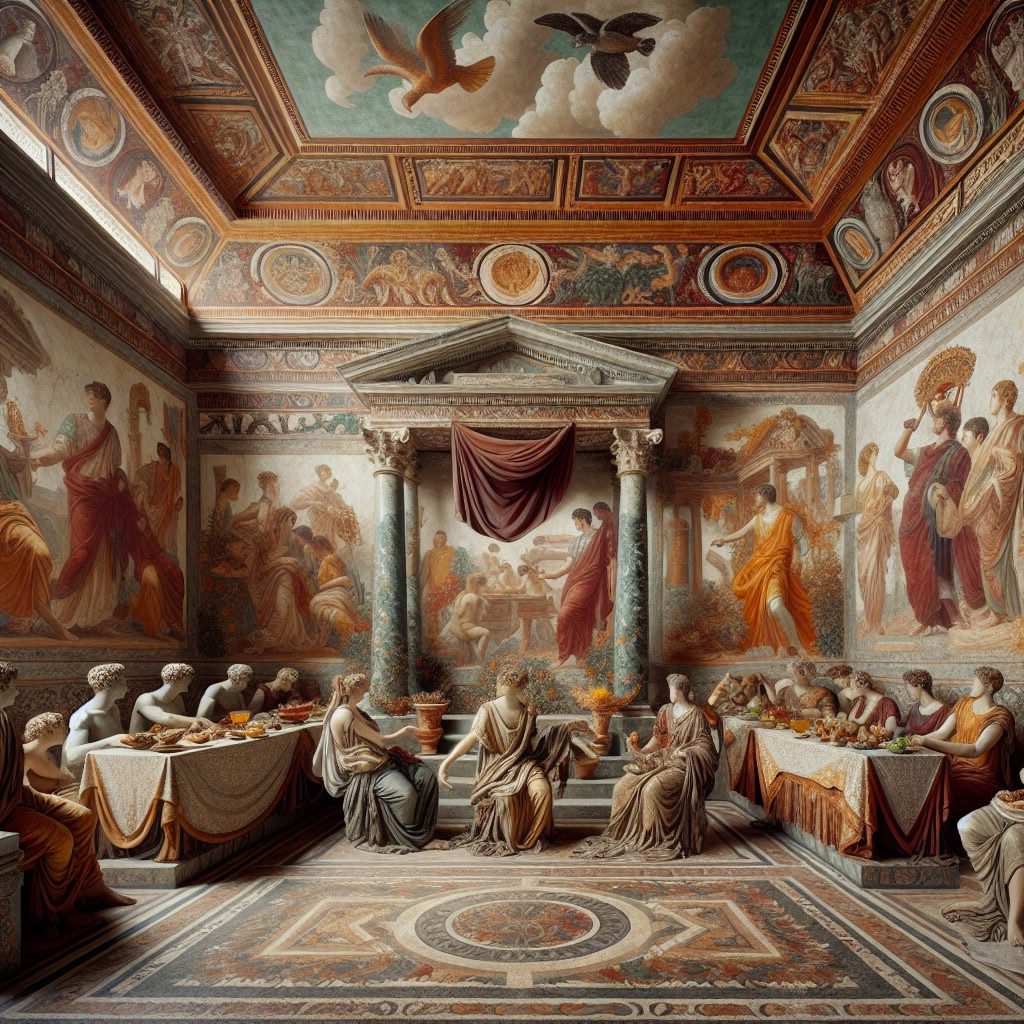
Cultural Influence of Private Armies
The emergence of private armies had a profound impact on Roman culture and identity, reshaping societal values and ideals. As these forces grew in prominence, they began to symbolize power and influence, often overshadowing traditional Roman virtues like civic duty and loyalty to the state. The personal allegiance of soldiers to charismatic leaders like Caesar or Pompey became a focal point of Roman identity, altering the perceived role of the military in society.
This cultural shift is vividly captured in Roman art and literature, where military scenes often depicted the grandeur and might of these private forces. Frescoes and sculptures from the period highlight epic battles and the valor of individual generals, emphasizing their pivotal roles over collective Roman endeavors. For instance, reliefs on monumental structures such as triumphal arches frequently celebrated the victories of these leaders, portraying them as heroic figures commanding private legions.
In literature, the influence of private armies is evident in works that explore themes of power and ambition, reflecting societal fascination with military prowess. These cultural artifacts provide insight into how private armies not only shaped military strategies but also left an indelible mark on Roman cultural identity.
Decline of Private Armies
As the Roman Republic teetered on the brink of collapse, the era of private armies began to wane. A key factor leading to their decline was the transition to a centralized imperial rule under Augustus. This shift marked the end of the Republic’s fragmented power structure, which had allowed wealthy elites to maintain their own armed forces. Augustus, recognizing the threat private armies posed to political stability, implemented reforms to consolidate military control under the state.
The establishment of the Roman Empire brought about significant changes in military dynamics. Augustus created a professional standing army loyal to the emperor, effectively eliminating the need for independent military forces. This centralized military system ensured that loyalty was directed towards the emperor, rather than individual generals, reducing the influence of private armies.
Moreover, the imperial administration introduced stricter regulations and oversight on military activities, further curtailing the power of private forces. These strategic moves not only stabilized the political landscape but also marked a pivotal transition from a republic threatened by private militias to a more unified imperial governance.
Conclusion
The rise of private armies in Rome marked a critical period of instability within the Republic. Wealthy elites, driven by increasing crime rates, began hiring personal forces, shifting military loyalty from the state to influential generals like Caesar and Pompey. These armies played pivotal roles in civil conflicts, undermining republican governance and contributing to its eventual collapse.
The historical significance of these private forces lies in their profound impact on political structures and societal norms, altering the course of Roman history. As we reflect on this era, it serves as a reminder of how concentrated power and personal ambitions can destabilize a government. The legacy of private armies is a cautionary tale about the fragility of political systems when individual interests overshadow collective unity.
FAQ on Private Armies in Rome
Understanding the role and impact of private armies during the Roman Republic can be complex. Here are some common questions to shed light on this historical phenomenon.
What led to the creation of private armies in Rome?
Private armies emerged primarily due to rising crime rates and the need for wealthy elites to protect their interests. This was compounded by the inefficiencies of the state to provide adequate security.
How did private armies affect military loyalty?
These armies shifted loyalty from the Roman state to individual generals. Soldiers often pledged allegiance to leaders like Caesar and Pompey, who could offer better rewards and opportunities.
What was the impact of private armies on Roman governance?
Private armies were instrumental in civil conflicts, contributing to the destabilization of republican governance. Their existence exacerbated political divides and weakened the central authority.
Did private armies influence Roman society?
Yes, they significantly impacted social structures and public perception. The reliance on personal forces undermined the traditional military ethos and disrupted societal norms.
These questions help illuminate how private armies not only reshaped military allegiance but also had lasting effects on Roman political and social life.

